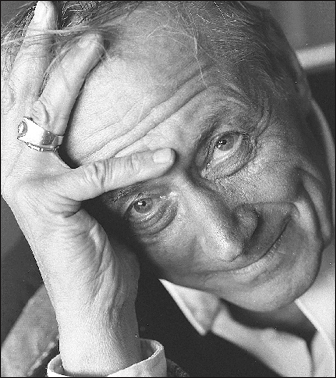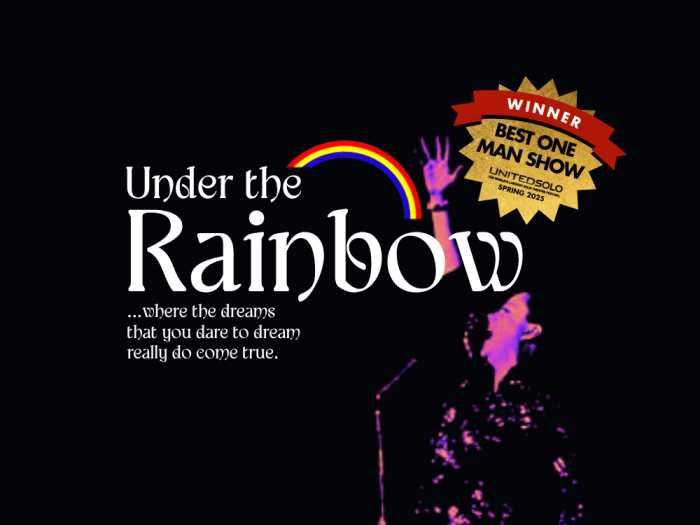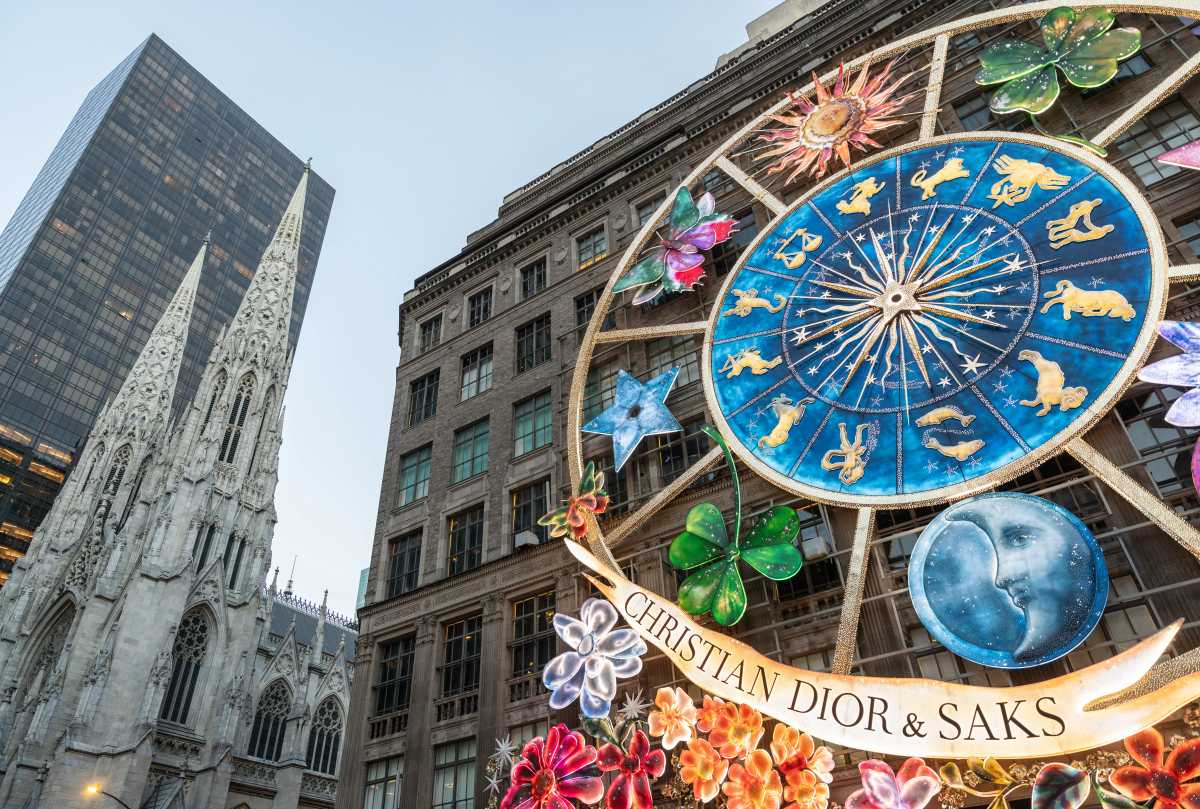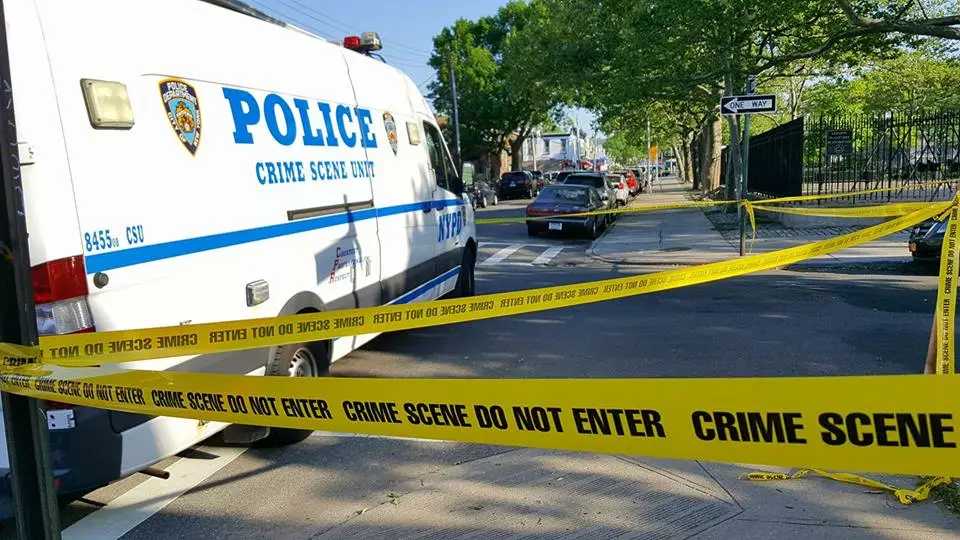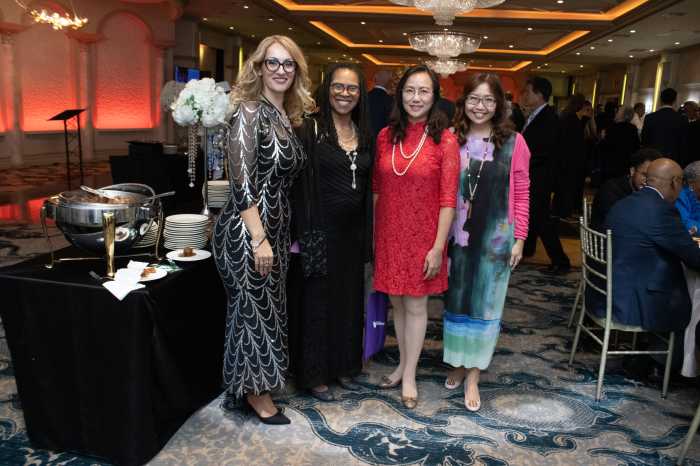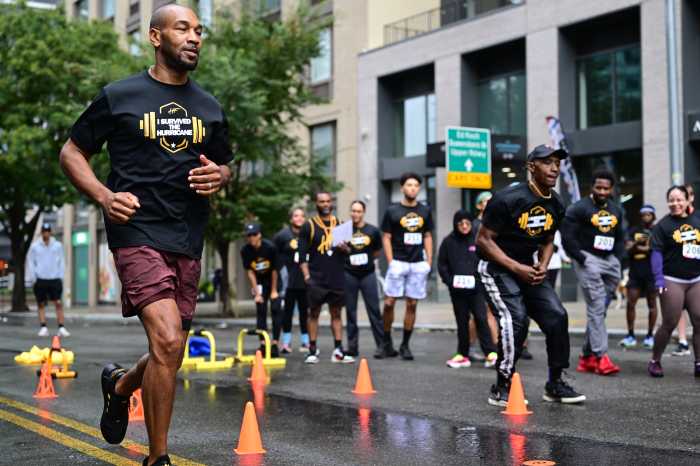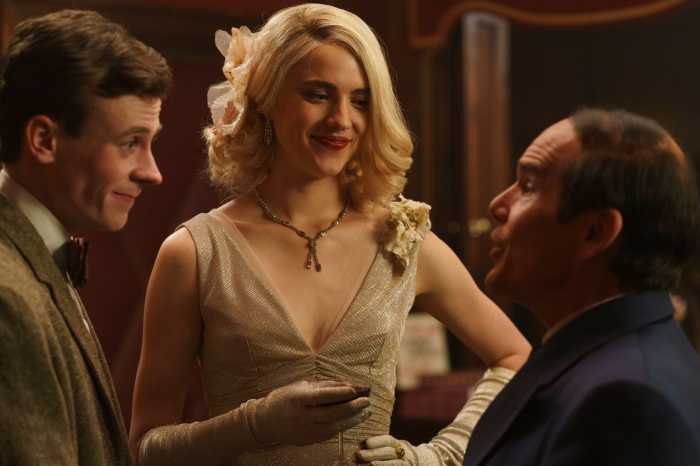By JERRY TALLMER
Seaport Museum receives Andrea Doria medallion
No monument stands over Babi Yar.
A drop sheer as a crude gravestone.
I am afraid,
Today I am as old in years
as all the Jewish people.
Now I seem to be
A Jew …
So begins the poem by Yevgeny Yevtushenko that Yevtushenko himself, on the 65th anniversary of the Nazis’ liquidation of 33,000 Jews at the ravine of Babi Yar, outside Kiev, will recite Wednesday evening, September 27, at the Museum of Jewish Heritage in Battery Park City, where Yevtushenko will be presented with the Raoul Wallenberg Award by the Foundation of the same name. The program climaxes with Misha and Cipa Dichter at the keys in the world premiere of Shostakovich’s recently unearthed adaptation for two pianos of the First Movement of his Symphony No.13, the “Babi Yar” symphony.
“This year is exactly 45 years since that poem was published,” said the man who wrote it, on the phone last week from Tulsa, Oklahoma, where for a decade now he’s been a Distinguished Professor of Literature at Tulsa University.
And how had the then 28-year-old non-Jewish Yevtushenko come to write it in the first place? — this assault on apathy toward a slaughter that uneasy Soviet apparatchiks would blanket from appearing anywhere in the Russian press until (the ironically Orwellian) 1984.
“How? Why? Ashamed!” said Yevtushenko over the telephone. “Because I was ashamed! When I came to Babi Yar for the first time in 1961, I expected to see a little sign [identifying it for what it was]. I didn’t see anything. It was a garbage dump. Then, in my presence, some trucks came in and dumped more garbage on these people” — the 33,000 corpses, or skeletons, down below. “I was shocked. I went back to my hotel room and couldn’t sleep, so I started writing. Very quickly. Three — no more than four — hours.”
Ebullient is the word for Yevtushenko Aleksandrovich Yevgeni, born June 18, 1933, in Zima, Siberia, grandson of a Red Army officer during the Russian Revolution. Ebullient, and tall (6-foot-3), and dramatic as all hell, a natural-born actor who has long gripped audiences throughout this country and the world with renditions of his own poetry and that of others.
“I am not the first poet to write about Babi Yar,” he said. “Ilya Ehrenburg, he wrote a poem about it. A famous correspondent with the Red Army in World War II, Ehrenburg [a Jew] was born in Kiev. When the Red Army soldiers were rolling cigarettes from newspapers, they never used newspapers with articles signed by him.”
Out of distaste, dislike?
“No! Because of respect! Another poet who wrote about Babi Yar was Lev Ozonov [1914-1996]. So I discovered the existence of Babi Yar” — said Yevtushenko, who was 8 years old, in Siberia, when it had happened — “through poems like that — poems which were later never republished out of some strange conspiracy of silence.
“You have to remember,” said Yevtushenko, “that even before the Revolution, even under the Monarchy, the authorities were using anti-Semitism to explain away economic difficulties.
“Then with the end of World War II, there was hunger everywhere, unemployment, many cities were destroyed, and the authorities were again using this traditional tool of anti-Semitism.
“The greatest King Lear I have ever seen in my life was Solomon Mikhoel, an anti-Fascist German of Jewish descent, whose Jewish theater in Moscow was closed when his son died in a car accident. Which was a lie, as became clear after the death of Stalin; the son had been murdered.”
Mikhoel was among the accused in the notorious “doctors’ trial” — the 1953 Moscow kangaroo court that brought death-sentence charges against dozens of Jewish physicians and others accused of having poisoned a vast number of Stalinist high officials.
“That’s why I call it a conspiracy of silence. Some people think I’m a political poet,” said Yevtushenko. “No, I write very many love poems, and what I also am is a civic poet. So my ‘Babi Yar’ is written out of joy — joy of the love of life — and out of shame.”
The day after he wrote it he was to read it at a big hall in Kiev.
“Very early that next morning there was a knock on my hotel-room door. It was a teacher with a couple of boys from her class. They brought me the news that running around town were volunteer [vigilante] policemen with red ribbons on their shoulders. They were pulling down my posters. I was very naïve, and did not know they were also bugging my hotel room. Bugging — a good American word, yes?
“I called the local authorities, and they said the hall had to be closed because of a flu epidemic. I said: No, you’re lying to me, and I’m going to read this poem in the biggest public square I can find. They got scared, and that is why the very first reading of ‘Babi Yar’ took place in August of 1961 in the Oktober Hall at Kiev. It was sold out, and a thousand people who couldn’t get tickets were outside, in the streets around the hall, demanding microphones.”
Yevtushenko, on the phone, let that sink in. Then:
“When I finished reading, there was a silence. An avalanche of silence. Probably not so long, but it seemed long. Then in this full silence one little old woman stood up. She was so bent, so fragile, looked hunchbacked but wasn’t, and had a wooden cane. She walked to the stage — walked to me — and all you could hear was that cane knocking against the stage.
“She climbed up on the stage. Complete silence. Then she kissed my hand.
“The applause was like thunder. I learned later that she, this little old lady with the cane, was one of only 10 or 12 people who, lying under this pile of corpses at Babi Yar” — 33,000 corpses — “had somehow survived.”
After that reading and other readings, came another and greater problem: Getting someone in Russia to publish the text of “Babi Yar.” (The lines appearing at the head of this article are from the translation into English by George Reavey.)
“The man who did publish it had much more courage than me,” said Yevtushenko. “He was Valery Kosolapov, the editor of Literatur magazine and a member of the Communist Party. He said: ‘It’s a great poem, I’d like to publish it, but first I have to call my wife. Why? Because I’m going to be fired if I publish it.’
“His wife came to the office. She had been a nurse in the Second World War who had saved many people. When she spoke to me her eyes were a little wet. With a little smile, she said: ‘We decided to be fired.’ ”
The morning after publication, the telephone rang at the Yevtushenko apartment.
“My wife [he’s had four wives] answered it. She came and said she’d hung up on ‘some arrogant hoodlum who called himself Dmitri Shostakovich.’ Then the phone rang a second time. It was, again, Dmitri Shostakovich.
“‘Yevgeny Aleksandrovich Yevtushenko,’ he said, using my full patronymic — everybody calls me Zhenya, even now — ‘I would like to ask your kind permission to compose music to your poem.’
“I didn’t believe my ears. I thought I was dreaming. Then Shostakovich said: ‘Do you have a little bit of time now? Could you come over? Because the music is ready and I’d like you to hear it.’ ”
Yevtushenko is a man of many interests, music most certainly among them. He got talking over the phone about the generosity of the late poet/songwriter Jacques Brel toward hard-pressed politically incorrect Russian painters and playwrights in the early 1960s, also about the “incredible timbre” of poet/singer Charles Aznavour at age 82, and all the years before that.
“Aznavour!” said the 73-year-old Yevtshenko. “We met in Paris long ago. We were older then! Now we are younger!”
New Yorkers who would like to see and hear proof of that proposition can call (646) 437-4202 or go to mjhnyc.org to ask about tickets ($25 to $65) to the Heritage Museum event.



